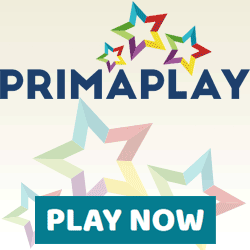Minors in the iGaming Industry: Nothing for You Here [Sorry, We’re Full!]
Gambling is inclusive; dices, cards, and reels know no race, gender, nationality, or affiliation. They just want to be rolled and played. Gamblers are not picky, either: they want to win in any game at hand and make the most of it. This perpetual circle of chances and choices is available to everybody except for one group: adolescents.
 Regardless of how it may sound, minors are not welcome to the world of gambling. There is no place for them in any casino. Coming of age is prerequisite to coming to gamble. Period.
Regardless of how it may sound, minors are not welcome to the world of gambling. There is no place for them in any casino. Coming of age is prerequisite to coming to gamble. Period.
Our industry has to be unison in delivering this message, for it’s the right thing to do.
Now, from the legal standpoint, gambling is prohibited for all underage players, having 18 years of age set as the most often limit. Land-based casinos have an easier part of the enforcement equitation due to the physical peculiarity of their operations and therefore exercise the age control more efficiently.
On the other hand, online gambling faces certain challenges.
Nowadays well-regulated in the majority of the most progressive countries in the world — from the European Union to Australia, from Canada to South Africa, from the increasing number of states in America to the United Kingdom, from New Zealand to Japan — the iGaming industry appears to be steadfast on istering age barrier.
However…
Research and occasional news paint slightly different picture, framed by technology and our omnipresent desire to test chances in almost every opportunity.
How come?
Balancing Proclivity and Possibilities
Resembling all too well recognizable story, technological advances have enabled us to utilize almost infinite potentials and improve our lives while integrated society and industries enhanced efficiency and information flow, not to mention other breakthroughs.
But, hand in hand came issues on social networks, online bullying, individuals undeservedly being judged by opinionated communities, and other malicious social manifestations. As the majority nowadays crave online and real-life recognition more than ever, the internet additionally provides for a perfect cushion of anonymity, accessibility to instantaneous pleasures, and forbidden fruits.
On occasion, we find it hard to resist and balance properly opportunities at the tip of our fingerprints.
 When we add the possibility of quick financial safety coming in the seductive form of games and chances, luck and skills, choices and balances — the untold promises of greener pastures achievable through our keyboards start to rise as a bread dough in hot oven (and those tend to get quite burned at the bottom if managed by an unexperienced baker).
When we add the possibility of quick financial safety coming in the seductive form of games and chances, luck and skills, choices and balances — the untold promises of greener pastures achievable through our keyboards start to rise as a bread dough in hot oven (and those tend to get quite burned at the bottom if managed by an unexperienced baker).
When it comes to iGaming, problem gamblers and a small percentage of players with gambling disorder offer testimonies of the heatwave experienced in the digital stove. Responsible s and casinos are proactive in suppressing it tly with national regulators as much as possible.
But…
Teenagers know nothing about this and don’t see it that way.
For them, online gambling is just one of digital options at their disposal; it’s just one of shortcuts to take and reach the influencing stardom of money, financial security, celebrity status, or the holy grail of popularity.
There’s nothing wrong with such goals, that’s not the issue. The issue is the path: iGaming just don’t serve such purpose.
Misapprehension and Responsibilities
Now, the potential illusion is understandable. Let us just dial-in for a second Tom Sawyer and Huckleberry Finn or any adventure from our teen years — including how deaf we were to the advice of our elders — and we can correlate to such misconception with ease.
So, when minors approach online gambling it could be understood as growing up.
To them, it’s nothing more than an extension of indulgence in computer and mobile games they’ve been practising their whole life, nowadays often coming with an in-game economy like skins trading, redeemable virtual items, or loot boxes.
Well versed in players’ investment, living in a society with legalized, well-regulated, and d gambling as socially acceptable behavior, teenagers also enjoy in online concealment: to visit an online casino, all they need is to acquire or borrow a credit card.
 At that point, with a piece of plastic in their hands, minors are completely undetectable by the whole iGaming industry.
At that point, with a piece of plastic in their hands, minors are completely undetectable by the whole iGaming industry.
Sure, there are numerous practices employed by interactive casinos precluding minors to gamble, but sometimes they are of little effect.
For instance, there is the KYC (Know Your Customers) standard in place, requiring for verification of players through credit card to start gambling. Only when a player wants to take away money from an online casino it has to provide for official identification, proof of address in the form of a recent utility bill, and to make verification deposit proving payment method used for deposit and withdrawal belongs to the same person.
Some operators even require a player to make a selfie with ID document, while all of them are very sensitive to any kind of editing of pictures sent as a proof deeming them invalid even in the case of the simple crop.
All of this is to say — unless teenager wins, if there is no withdrawal to be made, one can gamble unrestricted. For such scenario, KYC procedures just don’t work. The actual outcome is unhindered gambling and accumulation of losses, not to mention endangering the health of a teenage player.
For uninitiated, this might sound like super-rare, almost science-fiction scenario. It’s not.
When the UK politicians began last year to evaluate the possibility for the outright ban to use credit cards in online gambling — the initiative is still in process of evaluation — one of the goals was to “further safeguard children”.
If the next counter-argument was to be made on the lines of practical impossibility for teenagers to possess a valid credit card, not to mention to KYC requirements during withdrawal, the official statistics offer a surprising testimonial of their gambling proclivities and inexhaustible human ingeniosity when it comes to bending the rules.
Figures’ Story
According to the UKGC report on young people and gambling — exploring behaviors of children aged between 11-16 years old, published in November 2018 — 66% have seen gambling advertising on TV, 26% have seen their parents gamble, 39% have spent their own money on gambling over the past 12 months and 14% have gambled in the last week, while only 19% of parents set out strict rules on gambling.
There are approximately 450,000 children between 11-16 years old in the UK. Close to 55,000 of them have compulsive gambling issues.
Worth noting is that the United Kingdom is one of the most regulated iGaming markets in the world.
 On a global scale, A Systematic Review of Recent Research (in Prevalence of Adolescent Problem Gambling) findings — conducted by the US National Library of Medicine of the US National Institutes of Health, published in 2016 — reveal that some 0.2 to 12.3 percent of global teenagers meet criteria for problem gambling.
On a global scale, A Systematic Review of Recent Research (in Prevalence of Adolescent Problem Gambling) findings — conducted by the US National Library of Medicine of the US National Institutes of Health, published in 2016 — reveal that some 0.2 to 12.3 percent of global teenagers meet criteria for problem gambling.
The majority of data used in this study comes from North America, Europe, and Australia, compounding figures from 44 different studies.
In North America, adolescent problem gambling “prevalence rates ranged from 2.1 to 2.6%, whereas in Oceania these rates ranged from 0.2 to 4.4%. In Europe, problem gambling prevalence rates ranged from 0.2 to 12.3%.”
In South Korea, the situation is even more alarming.
According to the Korea Center on Gambling Problems’ Report submitted to the National Assembly recently, as Calvin Ayre reports, the number of teenagers who received treatment for gambling addiction increased six-fold from 2015 to 2018. Also, the rate of youth quitting gambling after the treatment has been declining for years.
(Side note: interactive gambling is prohibited in South Korea, excluding state lotteries while offshore operators accept players from South Korea.)
Safeguarding Measures: Regulators’ Side
All these percentages, in effect, address the situation in 23 out of Top-30 nations in the iGaming industry by player location. Projected online gambling revenues for these thirty countries in 2019 are close to $55.83 billion, according to H2 Gambling Capital.
In other words…
It is estimated that 0.2 to 12.3 percent of minors in two-thirds of countries which generate close to $56 billion in online casinos can be potentially classified as problem gamblers.
 The simple fact is: people gamble and sports betting or any casino game: instant gratification, excitement with enjoyment, a shortcut to riches, plus here and there to relieve boredom and feelings of depression. They walk the same path as amateur grown-ups do: wins offers stratospheric highs while losses deliver an inevitable drop in self-esteem, financial anxiety, depression, and fear.
The simple fact is: people gamble and sports betting or any casino game: instant gratification, excitement with enjoyment, a shortcut to riches, plus here and there to relieve boredom and feelings of depression. They walk the same path as amateur grown-ups do: wins offers stratospheric highs while losses deliver an inevitable drop in self-esteem, financial anxiety, depression, and fear.
One thing, though, makes for the whole difference: teenagers don’t have the same level of self-protection systems at their disposal and nor are they grown enough to cope with consequences properly, let alone skills and knowledge required to gamble successfully.
To face such challenge, national regulators, the iGaming industry operators, and parents work in a three-layered t effort to sustain current precaution procedures, raise awareness about minors in gambling, and keep improving overall players’ protection.
Notwithstanding sustaining well-regulated markets, the focus of regulators is particularly oriented toward advertising targeting of minors and sustaining better KYC standards.
In of the latter, the onus is on the better pre-checking process of age-verification, accurate identification, and vetting of players by thorough authentication methods. When it comes to advertising, ads can no longer be present on websites or games popular with teenagers. Operators and bookmakers have to use targeting tools ensuring online gambling promotions cannot be seen by teenagers.
Furthermore, regulators stipulate that casinos have to stop using under-25 celebrities and social media influencers popular with teenagers in their promotions.
In the United States, another highly regulated gambling market, the bill named Protecting Children from Abusive Games Act entered the Senate this year. Championed by Senator Joshua Hawley (R-MO), the initiative’s goal is to prohibit microtransactions usage in games to anyone under the 18 years of age.
In another development, the UK’s Government is to conduct a consultation on raising the age limit of National Lottery gaming and scratchcards from 16 to 18 years of age, to protect children and young people.
The iGaming Industry’s and Parents’ End
Having such thorough legislative resourcefulness is just one segment of the three-pronged initiative. The other one consists of casinos, s, and game developers properly ing regulators.
The iGaming industry already has the professional and social obligation to handle problem gamblers and compulsive gambling issues, thus it’s only natural to extend this effort onto minors.
 The implemented measures are oriented towards transparent information about underage gamblers, in addition to remodelling promotional claims and approaching advertising moderately and realistically. No longer they communicate enticing financial promises but instead are instructional about options at players’ disposal.
The implemented measures are oriented towards transparent information about underage gamblers, in addition to remodelling promotional claims and approaching advertising moderately and realistically. No longer they communicate enticing financial promises but instead are instructional about options at players’ disposal.
However…
The single most important prong is the overall awareness of parents, the pivoting point of the whole system.
Thus, informative efforts by the gambling industry and regulators are under the way to help families to be more focused on what children are consuming at their devices and keeping credentials away, limiting kids’ online time, employing filtering software to block minors from certain websites, and other s and cybersecurity solutions.
Additionally ing them, the iGaming super-s provide for educational content in of the psychology of gambling, universal aspects of games, how to build healthy habits while gambling responsibly, and knowledgeable advice of prominent experts. (After all, we’re creatures of imitation. Kids do as we do, not as we say. When grown-ups and society have a healthy attitude towards gambling, so does the minors.)
The Sum of All
Short of perpetual increase in t efforts at each of these three prongs, there is one capping segment to have in mind: we all have a moral obligation to proactively react when minor is observed gambling.
It’s one thing for us, the adults, to exercise our choice of gambling or not, fully formed and aware of potential consequences. But it’s a completely different thing to know a minor is walking such a path utterly not equipped to handle it properly, not to mention to bear the costs.
Thus, it is up to us — players, patrons, aficionados — to react in an educated and measured way, which is to say using our assertive skills, authority based on knowledge, and communication driven by understanding, not the judgment.
Surely, we’ll inform appropriate organizations, but the single most important thing to do is to spare some time and just talk to teenagers whenever and wherever we can.
Yes, it’s difficult, almost impossible to do online.
We might not achieve much, we might be fed with a few of f-bombs from underage counterpart as we do so, it might be complicated to preach the opposite of what we practice, but if nothing else — it’s also the only thing we can and have to do.







